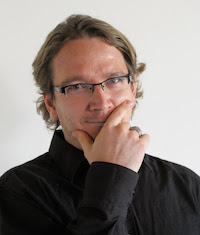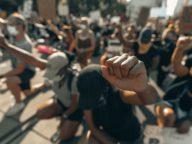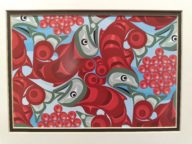Remembering our ancestral origins
In the midst of racial tension and civil unrest, I desperately need to remember our human origins. What is our collective story as humans? Where do we get the belief that there is intrinsic value in every ethnic group?
The biblical narrative tells of how our first parents, Adam and Eve, were created in the image of God and lived in perfect relationship with their creator, their own selves, one another, and their physical environment.
It wasn’t too long into the story, though, that the enemy of God (Satan) tempted Adam and Eve to disobey God by eating the fruit of the tree of the knowledge of good and evil. In rebellion they chose autonomy from God and ate the fruit from the tree. They wanted to construct their lives apart from God, and go their own way.
The sin of pride and self-protection invaded their hearts and immediately corrupted all their relationships. They were fearful of God’s presence and felt ashamed and naked. Adam blamed Eve and Eve blamed Satan. God banished Adam and Eve (humanity) out of Eden. For if they had stayed, they would have eaten the fruit of another tree in the garden––the tree of eternal life––and would have been stuck in that broken and sinful state for eternity with no hope of redemption.
But thankfully God had another plan, albeit a very long one, thousands of years long actually. And we see this first family (Adam and Eve with their children Cain and Abel) having to deal with the fallout of their rejection and rebellion against God.
We see the first family fall apart when Cain’s jealousy and hatred of his brother Abel drives him to murder. In disgust and contempt for God, Cain is the first prototype of all who eagerly desire to build their character, their life, their family, their city, and their nation outside of God’s morality and blessing. Adam and Eve’s third son Seth is a prototype of those who call on the name of the Lord.
The human gene pool in one family
When the population of humans increased, God was not pleased with the wicked hearts of the people he created. He intervened by bringing a flood upon the earth to destroy all humankind, save one family.
Humanity’s gene pool narrowed to Noah’s three sons and their wives, the only human genes to survive and be passed on. When the three families stepped out of the isolation of the ark to their new normal, God again gave the same command to them as he did to Adam and Eve.
They were to increase, multiply, and spread out throughout the earth. Each son and his wife started families of their own and, from their genes, generations of the earth’s population grew rapidly once again. From these three sons of Noah, we can read the documented table of nations that descended from these families (Genesis 10), and can trace the diversity of ethnicity we observe today back to them.
The ascent of Babylon-prototype empire
But the same lust for power, pleasure, and pride, although restrained by God’s intervention through the flood, raised its ugly head within a century; it manifested itself in the same expressions of defiant human pride and autonomy from God.
Babylon, one of the first human empires, was distinguished by the collective will of the people who refused to spread throughout the earth as God had commanded, and settled instead. To make their point, they vowed to build a tower that would reach to the heavens, all for the sake of their great name.
Nimrod was their ruthless dictator, a killer of humans as he forced his way. He was the first prototype of every world empire builder. He was typified by aggressive expansion, greed, and weaponized power to will anything.
But God opposed Nimrod and the people of Babel, and would not allow their human pride and autonomy from him to endure. God intervened, and restrained their sin by confusing their language and dispersing them all over the earth.
Each nation seeks to dominate another
From Babel each family roamed, travelling to settle in their various locations throughout the earth, each growing in number, but also taking with them their lust for pride and great desire for power and domination.
Consider the Bible’s documentation of the great empires of Babylon, Persia, Greece, and Rome. Their powerful rises all came with increased capacity for conquering, killing, and destruction. And what is the mantra of world empires? “I exist for me and for my glory, executed by my military power, for my great wealth, comfort, and pleasure.” Even God’s chosen family of Israel couldn’t resist this power, and failed to be a light and blessing to the nations around them.
Yet, those families with faster population growth and advanced technology were able to dominate in war, and grew into empires that used their power to subjugate others who were weaker.
History’s annals are full of stories of the families of nations who imposed brutality, war, abuse, slavery, and disdain for the weak to propagate their ambition and world view. But all of this was at the expense of those they abused, those who were helpless to defend themselves.
Jesus loves every ethnicity
When Jesus arrived on the first-century scene, he introduced his upside-down kingdom. His Sermon on the Mount was his political and spiritual manifesto. It was a kingdom belonging to the poor in spirit, the meek, the pure of heart—opposite values to that of worldly empires.
Jesus reached out with his love and message to those even beyond his ethnic group. In fact he intentionally crossed ethnic barriers to accept and even commend Israel’s most detested neighbours: a Samaritan, for his goodness, and a Roman centurion, for his faith, to name two.
Continuity of ethnic diversity in heaven
In the book of Revelation, at the end of the Bible, John is taken up into heaven, and there he sees people from every tribe, ethnic group, and language worshipping God before his throne in heaven:
After this I looked, and there before me was a great multitude that no one could count, from every nation, tribe, people and language, standing before the throne and before the Lamb. They were wearing white robes and were holding palm branches in their hands. And they cried out in a loud voice: “Salvation belongs to our God, who sits on the throne, and to the Lamb.” (Revelation 7:9-10)
God created Adam and Eve in his image. All of their children’s children that have ever populated and filled the earth, or ever will, all bear the image of God. That is proof enough that every human life is valuable. The image of God is represented in all ethnic groups.
We can further see God’s value of all human life in God’s plan to redeem the original sin of Adam and Eve and restore all people to himself. God was willing to pay an infinite price. He was willing to give the life of his one and only Son––Jesus––to restore our relationship to him and one another. He died on the cross to cover the sin of not just his own people (the Jews), but for all peoples––even the ones that didn’t even know he existed.
If we place our faith in Jesus, we are restored to God and each other, and get to live forever with God in eternity. In essence, we get to eat from the fruit of the tree of eternal life, but not as broken and sinful people like Adam and Eve, but as restored and redeemed humans. God values all human life and desires for us to live forever with himself.
What could show the worth of a human being more? In John’s vision of heaven, we see the continuity of diversity. We will retain our respective ethnicities. God is working to bring people back to himself to be unified in our diversity, throughout all eternity. This is the beauty of both the diversity and the unity of the new heavens and earth that God is directing history towards.
In John’s vision of heaven, we see the continuity of diversity. We will retain our respective ethnicities. God is working to bring people back to himself to be unified in our diversity, throughout all eternity.
How can I respond?
So, given the current prominent awareness of racial injustice in our culture and the resulting violence, how can I partner with God in his work of racial justice and reconciliation?
God is leading me to:
- Take time to listen to those who share their stories of racial injustice. Whether in person from people I know personally or in my circles, in print or through the media.
- Grieve, mourn, and call out to God in prayer for those who I have heard from and allow myself to feel their pain. Turning to the God of justice to redeem them.
- Confess my own bias and my negative judgements towards those of a different race from me. Recognize, acknowledge, and confess in what ways I have contributed to the problem. I need to confess my blind spots, my cultural assumptions, and the many times I have considered my race superior.
- Pray for those in authority, government and law enforcement, that they would not abuse their power or privilege, that they would be humbled, and that their actions would truly benefit especially those who are most vulnerable.
- Partner with those individuals or organizations who are working with the marginalized and oppressed. I have started to give money, offer physical help, a room, a shower, a ride, and have even sought out friendship with those who have suffered.
- To have a posture of humility, not thinking I know the best solutions or ways forward, and wanting to learn, even respecting those who disagree with me. “Be not wise in your own eyes; fear the Lord, and turn away from evil.” Proverbs 3:7
"*" indicates required fields
Share this!
About the Author





